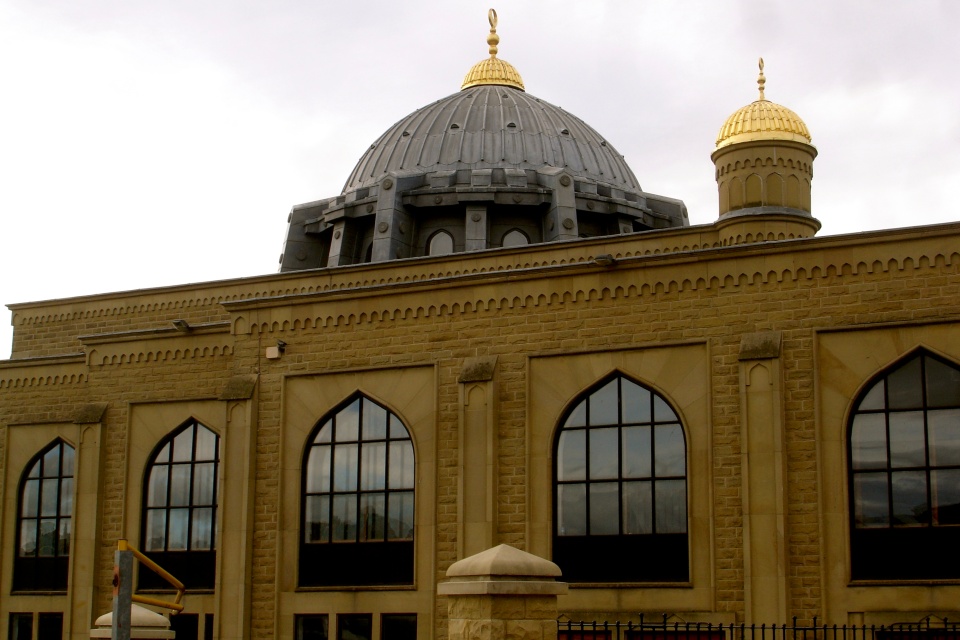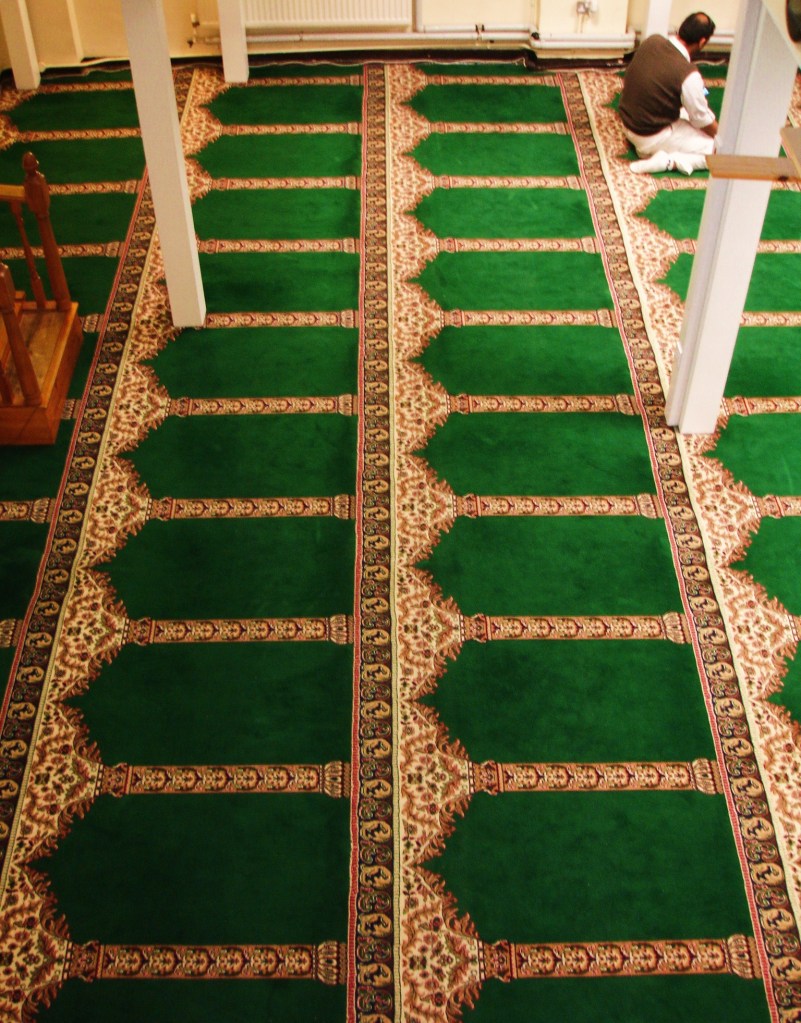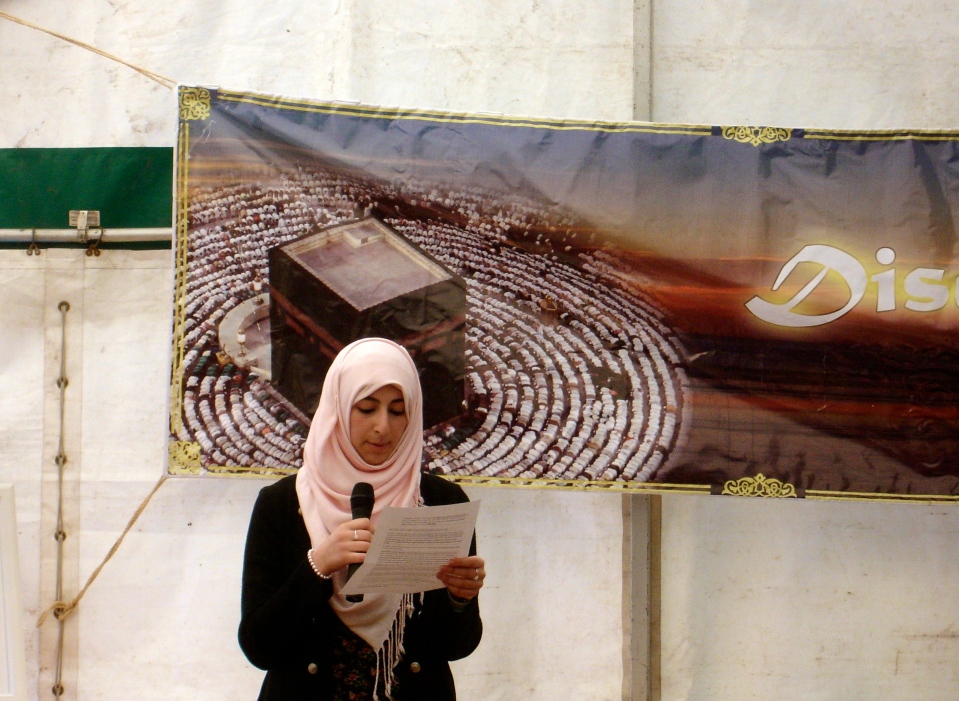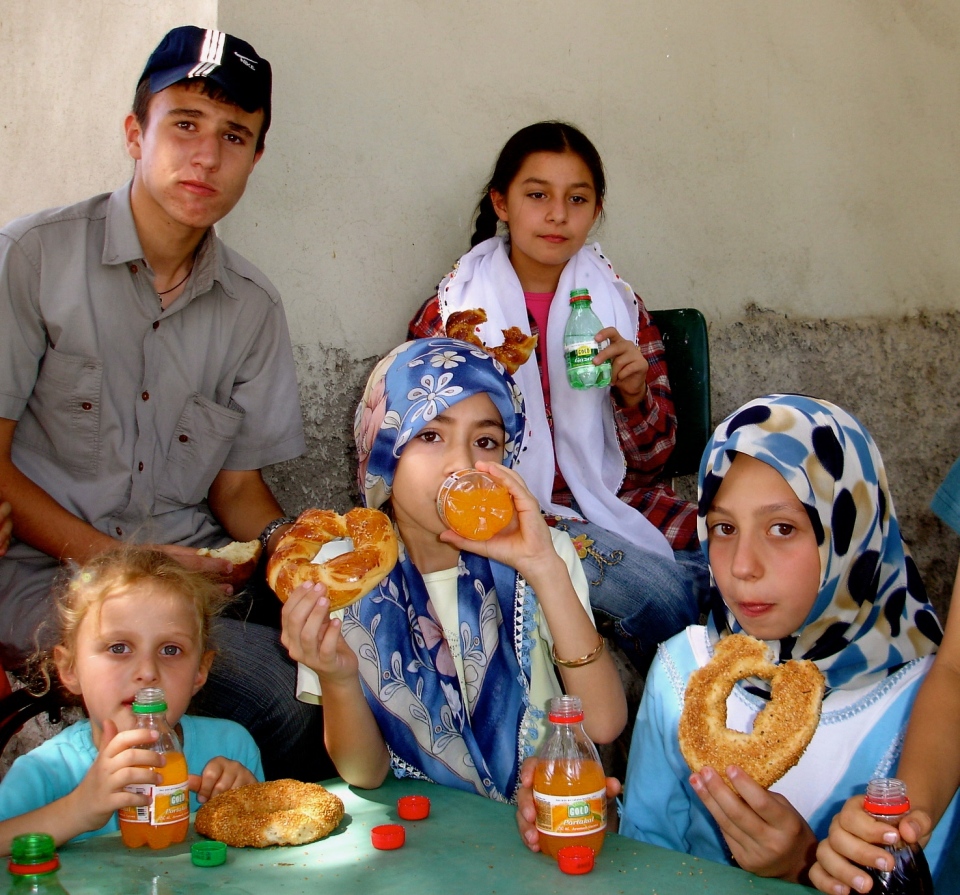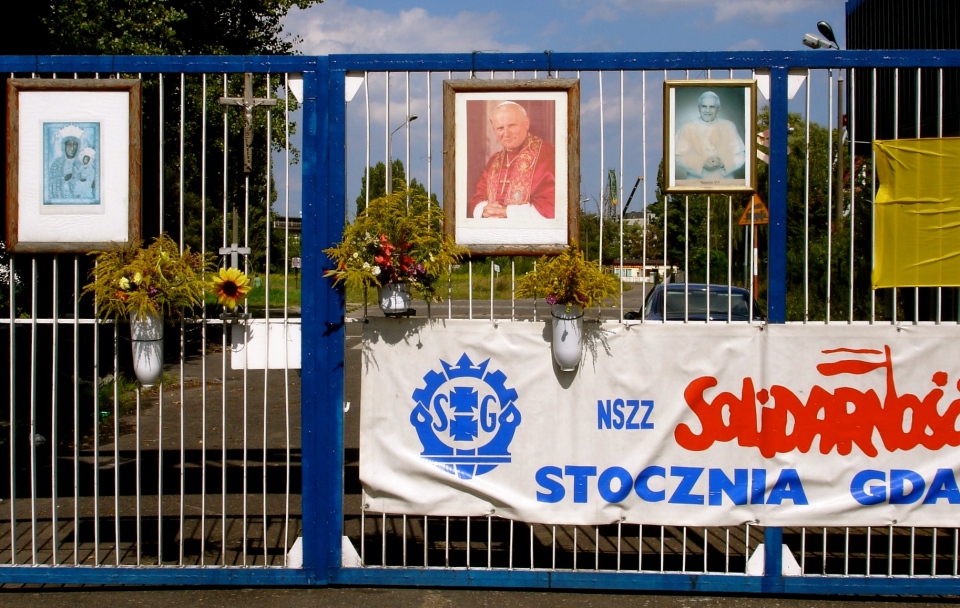Recently, Channel 4, a TV station in the UK, commissioned a survey about British Muslims and Trevor Phillips shared the results with a large TV audience in a documentary called “What do Muslims really believe?” one night in April 2016.
People have been right to point out that the survey has many real or potential problems. Only 1,081 Muslims were interviewed. ICM, the company that conducted the survey, failed to accurately predict the outcome of the 2015 UK general election, so would its findings about British Muslims be reliable? We do not know whether Shia, Sufi and Ahmadiyya Muslims were represented in the sample (and, if they were, whether in numbers reflecting their presence in the UK), or whether most or all respondents were Sunni Muslims. Moreover, we do not know whether comparable results would have been generated if a similar survey had been undertaken among just over 1,000 followers of, say, Judaism, Roman Catholicism, Pentecostalism and/or Mormonism (however, had a faith group such as one just listed been surveyed, markedly different results WOULD have been generated. But followers of such expressions of religion do not pose the same terrorist or security threats to the UK or other nation states as Muslims in considerable numbers currently do, so a survey into what they think is not of such urgency).
Despite the real or potential problems identified above, the survey findings cannot be ignored because many of them are confirmed by things said and/or done by Muslims themselves, both in the UK and, more obviously, elsewhere. But what the survey fails to do is differentiate between Muslims who incline toward a literalist interpretation of Islamic scripture while lacking an appreciation of the early history of Islam based on reliable evidence (most such Muslims are Sunni), and Muslims who interpret their scripture in other ways (e.g. metaphorically, selectively and/or with due regard for what is deemed morally acceptable today rather than in Saudi Arabia approximately 14 centuries ago) while evaluating the early history of Islam in the light of contemporary scholarship both Muslim and non-Muslim.

Luton, United Kingdom
Let’s begin with what might be deemed some good news: the great majority of British Muslims feel very strongly or fairly strongly that they “belong” to Britain, and the great majority of British Muslims feel that, when in contact with service providers, in most instances they will be “treated the same as” members of other religious groups. These findings seem to suggest that most British Muslims feel integrated and most people providing services to British citizens treat everyone equally/fairly.
I will now turn to some of the more controversial/contested findings in the survey. After each of the following statements, the percentage for Muslim respondents precedes the figure for non-Muslims. Where only one figure exists, the figure applies to Muslims alone:
I visit a non-Muslim home once a year (21%).
I never visit a non-Muslim home (21%).
As far as possible, I want to lead a life separate from the non-Muslim community (17%).
I would prefer to send my child/children to a school with strong Muslim values (45%).
It is acceptable for Muslim men to have more than one wife (31%, 9%).
Women should always obey their husbands (39%, 5%).
Stoning is an acceptable punishment for adultery (5%).
Homosexuality should be legal (18%, 73%).
Homosexuality should be illegal (52%, 10%).
Jewish people have too much power in the UK (35%, 9%).
I sympathise with violence against those who mock the Prophet Muhammad (18%).
No one has the right to show a picture of the Prophet Muhammad (78%).
No one has the right to make fun of the Prophet Muhammad (87%).
I sympathise with the creation of a caliphate (7%).
In parts of the UK, I would like sharia to prevail rather than laws determined by Parliament (23%).
I have sympathy for people who engage in terrorism such as suicide bombing (4%, 1%).
If the statistics above reflect realities within the UK’s Muslim community (Channel 4 assumes that almost three million Muslims live in the UK), they throw some doubt on how successfully Muslims have integrated, and they throw into question how much sympathy they have for freedom of speech, gender equality and equality of opportunity irrespective of sexuality. They also suggest that anti-Semitism is more widespread among Muslims than non-Muslims, and that violence against people who challenge cherished aspects of Muslim identity is sometimes justified. Much is made of the “fact” that about 100,000 to 120,000 British Muslims appear to be in sympathy with people who engage in terrorism such as suicide bombing, but the survey also appears to suggest that 600,000 non-Muslims have similar sympathies! My instinctive reaction to the figures generated by this aspect of the survey is that they do not reflect reality – but many of the other figures do, and some of the other figures are a far more accurate/reliable gauge of levels of support for extremism and/or terrorism among the UK’s Muslims.

Luton, United Kingdom
Of interest is some of the information shared in the documentary that did not relate directly to the survey results. For example, it would appear that no fewer than 85 sharia courts or councils already operate in the UK and that, in the way they function, they deny women equal rights with men (this is necessarily the case because sharia courts and councils value testimony from men more highly than testimony from women).
Some statistics suggest that young Muslims may have more enlightened attitudes than elderly Muslims. For example, while 28% of Muslims aged 18 to 24 say homosexuality should be legal, only 2% of Muslims over 65 agree.
One worrying statistic is that only a third of Muslims would report to the police someone whom they knew might be involved in supporting terror in Syria or elsewhere. But it would appear that the non-Muslim population has a similar attitude toward people whom they knew might be involved in terror, which suggests all people are reluctant to inform on people they know, no matter the real or potential seriousness of their actions.
The documentary suggests that the more Muslims hanker after a separate existence in British society, the more likely it is that they incline toward extremism and violence. There also appears to be a correlation between sympathy for extremism and violence and a lack of social belonging, a desire not to integrate, a desire for a fundamentalist Muslim lifestyle and a desire to impose sharia. Muslims in sympathy with extremism and violence also seem to incline toward illiberal views in relation to issues such as gender equality and gay rights.
Trevor Phillips offered few solutions to the problems the survey seems to reveal, but he said that some government policies were beneficial (e.g. challenging Muslim women’s isolation within mainstream society by ensuring they can speak English). He also said that it was necessary for the UK to “reassert the liberal values that have served us well for so long” and to “challenge the laissez-faire attitude of live and let live”, which has allowed de facto segregation and extremism to thrive within some Muslim communities. He briefly made a case for “active integration” rather than “live and let live”, which would require of people with the power and influence to intervene where de facto segregation or extremism prosper or are likely to prosper. Phillips suggested stopping “the number of schools segregated on the basis of religion and/or ethnicity from growing further” and of applying to institutions such as schools “comply or explain codes” that have proved successful in the EU to reform corporate behaviour.
An example of how “comply or explain codes” might work in relation to schools would be as follows. It could be required of schools to never admit more than 50% of children from a single religion or ethnic group (although how this would work in some overwhelmingly monocultural areas is not clear). If a school admitted more than 50% of children from a single religion or ethnic group, senior managers would have to explain why the situation had arisen and, if the explanation was unsatisfactory, the school would be compelled to conform with the more inclusive arrangement that the requirement sought to establish. Of course, quotas of this nature could also be applied to matters such as staff recruitment (e.g. to ensure there is a balance between men and women, and to ensure that teachers of all faiths and none work together), or to ensure that the governing body reflects diversity in wider society.
It was not something that was dwelt on during the documentary itself, but, when the survey is taken as a whole, there is a strong suggestion that a significant number of British Muslims (25%? 33%?) are not in sympathy with the so-called fundamental “British” values of democracy, individual liberty, the rule of (secular) law, mutual respect and/or tolerance for people with different faiths and beliefs. Of course, British citizens who subscribe to world views other than Islam are also not in sympathy with some or all of the values just listed, but we can say with confidence in numbers far fewer than is the case among British Muslims (this is confirmed in Kenan Malik’s article below).
I realise the survey is far from perfect and much more research is necessary to ascertain just how accurate the statistics are, but to some degree, it confirms many of the worries that already exist about the UK’s Muslim community today. However, I take comfort from the large number of Muslims who oppose stoning for adultery and the establishment of a caliphate. I also suspect that the survey does not do justice to the more progressive attitudes that prevail among most Shia, Sufi and Ahmadiyya Muslims as opposed to the less progressive attitudes that prevail among a majority of Sunni Muslims. It is the failure to account for the sectarian divisions among the UK’s Muslims that worries me the most about the otherwise highly worthwhile exercise undertaken by Channel 4. But rather this degree of (relatively reliable) hard evidence than none at all.

Luton, United Kingdom
Here is a (predictable) reaction to the documentary in “The Spectator”, a right-wing British magazine:
I think the general British public have known for some time what Phillips’s documentary professed to find surprising: that large numbers of Muslims don’t want to integrate, that their views aren’t remotely enlightened and that more than a few of them sympathise with terrorism. It’s only the establishment elite that has ever pretended otherwise.
“Everyone who has pinned their hopes on the rise of reforming and liberal British Muslim voices are in for a disappointment,” said Phillips. “These voices are nowhere near as numerous as they need to be to make an impact.”
Take those 85 sharia councils currently violating one of the most basic principles of English justice, equality before the law. Yes, we can cosily delude ourselves that they just deal with civil issues – marriage mainly – that can safely be regulated by religion. But can they? A Zurich professor called Elham Manea, herself a Muslim, has attended these councils and found them promoting a version of Islam as extreme as that practised in her native Yemen or by the Taliban, where women were treated as “minors in perpetual need of male guardianship”. How exactly does this accord with the legislation and practice of a country where men and women are supposed to have guaranteed equality?
Our solution up until now has been a kind of national cognitive dissonance – one where we all agree to pretend that Muslims are sweet, smiley and integrated, like lovely Nadiya from “Great British Bake Off”, and that her fellow Lutonians – the 7/7 suicide bombers – have, as the weasel phrase has it, “nothing to do with Islam”.
It’s not easy, though, and getting harder – as we saw on this week’s “The Island with Bear Grylls” (Channel 4, Mondays). I don’t doubt the producers were overjoyed when they managed to recruit their first Muslim castaway, Bradford body-builder Rizwan Shabir. But any hopes of a male Nadiya vanished this week when he quit, pleading an inability to cope with “living with women who are half-naked”.
I’ll leave the last word on this yawning cultural chasm to Noshaba Hussain, middle-aged former headmistress of Springfield Primary, one of the Trojan Horse schools in Birmingham. A pupil aged nine had asked why she wasn’t wearing a headscarf, declaring, “Only slags don’t cover their heads.” “This attitude is not acceptable in state schools in Britain,” observed Ms. Hussain.

Molenbeek, Brussels, Belgium
A far more insightful reaction derives from Kenan Malik’s website called “Pandaemonium” (I have made a few cosmetic changes to the text for reasons of clarity):
This is not the first poll to have shown the social conservatism of British Muslims. Linda Woodhead, professor of sociology of religion at Lancaster University, for instance, conducted a series of surveys with YouGov on religion, politics and social and personal morality, the results of which were published in 2013… The poll showed that religious believers were more liberal on issues such as abortion, homosexuality, same-sex marriage and assisted dying than is usually recognised in public debates. The key exception, however, were Muslims, whom the poll found to be more socially conservative than most other religious groups.
But that was not the whole story of the poll. It also found that Muslims were more polarised on many social issues than other groups. For example, on abortion, 20% of Muslims wanted to ban abortion altogether, a much higher figure than the general population, and higher than any other religious group. At the same time, 12% of Muslims wanted to increase the time limit, twice the figure in the general population and higher than in any other religious group. The ICM poll also shows some evidence of such polarisation, on a range of issues.
Given this polarisation, there is a possible methodological issue with the ICM poll. It polled Muslims only in areas where they made up more than 20% of the local population. According to the statistician Martin Boon, this covered 51.4% of the British Muslim population. Those who live in areas of high concentrations of Muslims could well be more socially and religiously conservative than Muslims who live in predominantly non-Muslim areas, and possibly less integrated. That said, the findings of this poll are not that different from previous ones.
The ICM poll is, as one might imagine, complex in what it reveals, and far more so than the headlines suggest.
On certain social issues – particularly homosexuality – there is considerable illberalism. Just 18% of Muslims think that homosexuality should be legal (compared to 73% of the general population), while 52% disagree. 28% would be happy to have gay teachers, while 48% would not (the figures for the general public are 75% and 14% respectively).
A large proportion of Muslims believe many anti-Semitic conspiracy theories. 35% thought “Jewish people have too much power in Britain”, 39% that they have too much power over the media and 44% that they have too much power in the business world (the figures for those that disagreed are 20%, 17% and 14% respectively). But when asked about what they thought of Jews personally, the picture changes dramatically. Respondents had to rate their feelings toward Jews on a scale from 0 to 100. The mean scores for Muslims and for the general population were similar (57.1 and 63.7). The mean score for Muslims’ feelings toward Jews (57.1) is little different to the mean score for the feelings of the general population toward Muslims (55.2). If we look at the proportion of the two samples that rated Jews between 0 and 50 (that is, rated them more negatively than positively), it is lower for Muslims than for the general population (39% to 52%). By that score, there appears to be more antipathy toward Jews within the general population than among Muslims.

Molenbeek, Brussels, Belgium
Muslims do not appear to see Britain as a nation in thrall to Islamophobia. 73% thought that religious harassment of Muslims was not a problem. 82% had not faced harassment in the past two years and, of the 17% who had, more than three-quarters reported it as verbal abuse. More Muslims (40%) think anti-Muslim prejudice has grown in the last five years than think it has decreased (14%). But the comparable figures for the general public are 61% and 7% respectively. Muslims, in other words, actually seem less concerned about the growth of anti-Muslim prejudice than the public at large.
7% of Muslims supported the idea of a caliphate and 3% supported the Islamic State (2% of the general population supported a caliphate and 1% backed the Islamic State). Far fewer Muslims could “understand why a British Muslim like Mohammed Emwazi would be attracted to radicalism” than members of the general public (13% compared to 27%).
“The Daily Express”, under the headline “Astonishing two in three British Muslims would not give terror tip-offs”, “The Times” and many other newspapers in Britain and abroad noted that only one in three Muslims would report to the police someone close who might be getting involved in terrorism. But what the reports failed to note was that a lower proportion of the public at large (30%) would contact the police given the same circumstances. This is, in other words, not a Muslim problem, but a general reluctance among people to shop friends to the police, however heinous their potential crime.
What is difficult to argue from the figures is, as Trevor Phillips claims, that the social conservatism of Muslims is linked to a lack of integration. When asked, “How strongly do you feel you belong to Britain?”, 86% of Muslims said they belonged to Britain compared to 83% of the general population. A higher proportion of the general population (17%) than Muslims (11%) felt little attachment to Britain.
Respondents were asked how much integration they desired. 49% of Muslims said they would like “to fully integrate with non-Muslims in all aspects of life”, 29% wanted “to integrate on most things, but there should be separation in some areas, such as Islamic schooling and laws”, 12% chose “to integrate on some things, but I would prefer to lead a separate Islamic life as far as possible”, and 1% wanted a “fully separate Islamic area in Britain, subject to sharia law and government”. The figures reveal a desire for a degree of separation among half the Muslim population, but not a “nation within a nation”, as Phillips claims.
What the poll seems to show, as previous ones have, is a deep well of social conservatism, a more polarised community than one might imagine and a considerable attachment to Britain and to British identity. It shows issues that need confronting, but not necessarily as the headlines present them.
British Muslims seem more socially conservative than Muslims in some other Western countries. An Ifop poll of French Muslims and a Pew poll of US Muslims, for instance, both show more liberal views.
The Ifop poll found that 68% of observant Muslim women in France never wear the hijab. Fewer than a third of practising Muslims would forbid their daughters from marrying a non-Muslim. 81% accept that women should have equal rights in divorce, 44% have no problem with the issue of co-habitation, 38% support the right to abortion and 31% approve of sex before marriage. The one issue on which French Muslims are deeply conservative is homosexuality: 77% of practising Muslims disapprove.
According to the Pew poll, US Muslims are much more liberal about homosexuality than co-religionists in Europe – 39% think homosexuality is acceptable.

Brussels, Belgium
Over the past 25 years, people of most faiths in Britain have become more liberal on issues such as homosexuality and women’s rights. British Muslims, on the other hand, seem to have become more conservative on such social issues. I don’t have any proper data on this, but I speak largely from personal experience.
As I have observed many times, the views of today’s British Muslims are different from those of previous generations. The first generation of Muslims to this country were religious, but wore their faith lightly. Many men drank alcohol. Few women wore a hijab, let alone a burqa or a niqab. Most visited the mosque only occasionally, when the “Friday feeling” took them. Islam was not, in their eyes, an all-encompassing philosophy. Their faith expressed for them a relationship with God, not a sacrosanct public identity.
The second generation of Britons with a Muslim background – my generation – was primarily secular. Religious organisations were barely visible. The organisations that bound together Asian communities were primarily secular, often political: the Asian Youth Movements, for instance, or the Indian Workers Association.
It is only with the generation that has come of age since the late 1980s that the question of cultural differences has come to be seen as important. A generation that, ironically, is far more integrated and westernised than the first generation is also the generation that is most insistent on maintaining its difference.
The differences between attitudes among British, French and US Muslims may be the consequence of a number of factors. One such factor may be the difference in countries of origin and social status of migrants. British Muslims came largely from south Asia. French Muslims came primarily from North Africa and, unlike British Muslims, were largely secular. Even today, the majority of French Muslims do not describe themselves as practising Muslims. American Muslims tend to be more middle class than those in Britain or France.
A second difference is in social policy, in particular the development of multicultural policies in Britain that have helped create a more fragmented society. The differences in Muslim attitudes in the different countries are likely to have been created by a combination of these two, and possibly other, factors.
Much of the debate around the poll, and Phillips’s own commentary, has confused three issues: social conservatism, lack of integration and jihadism.
We should be rightly concerned with the degree of illiberal social attitudes within Muslim communities, especially as it was very different just a generation ago. We should not simply shrug our shoulders and say, “That’s what happens in a plural society.” We should combat illiberal attitudes, from whichever group, and support those struggling for a progressive future, including within Muslim communities. Too often, liberals betray such progressives in the name of tolerance or pluralism. But holding illiberal views is not necessarily the same as failing to integrate – and this poll does not reveal a link between the two.
We should also be concerned with the more fragmented nature of British society today, with people inhabiting their own identity silos, and with the lack of social contact between different groups (some evidence for this is provided in the poll). We should be concerned, too, with the growth of sectarianism within Muslim communities. There is a good argument to be made that silo-building has helped create the well of social conservatism within Muslim communities, and has encouraged sectarianism. The problem is not so much a lack of integration as the view, promulgated by many politicians and policy-makers, that it is through identity groups that such integration should take place. We need to challenge the social and multicultural policies that have, over the past three decades, helped entrench identity politics and encourage silo-building.
Also, there is the problem of jihadism, and of a section of Muslims being drawn toward Islamist views. As I have noted before, most studies show that Muslims are rarely drawn to jihadist groups because they already hold extremist religious views; rather, it is their involvement in jihadism that leads them to accept religious extremism as a justification for their acts. As the former CIA operation officer, now an academic and counter-terrorism consultant to the US and other governments, Marc Sageman, has put it, “At the time they joined, jihadi terrorists were not very religious. They only became religious once they joined the jihad.” This is why we need to rethink our ideas about radicalisation and how to combat it.
Illiberalism, lack of integration and jihadism are all urgent issues that need tackling. But we will not tackle any of them by drawing facile links between them.

Elazig, Turkey
Enough already. The Channel 4 survey into Muslim attitudes, although it has its problems, will prove worthwhile if commentary as perceptive as this by Kenan Malik is an outcome. But, as I have said on many occasions before, if problems of illiberalism, segregation and jihadism within the Muslim community are to be tackled constructively, there is only so much that the non-Muslim community can do. Solutions to the problems just listed lie ultimately with Muslims themselves, although non-Muslims with good intentions must lend their support to Muslims who seek to resolve such problems for the benefit of everyone.
